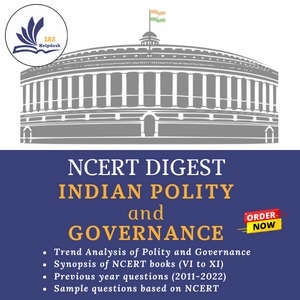PM Street Vendor's Atma Nirbhar Nidhi Scheme
Description
Ministry of Housing & Urban
Affairs launched a scheme PM Street Vendor's Atma Nirbhar Nidhi (PM
SVANidhi) to empower Street Vendors by not only extending loans to them,
but also for their holistic development and economic upliftment.
Who are street vendors?
Anyone who doesn’t have a permanent
shop is considered a street vendor. According to government estimates,
street-vending accounts for 14 per cent of the total (non-agricultural) urban
informal employment in the country.
There are an estimated 50-60 lakh
street vendors in India, with the largest concentrations in the cities of
Delhi, Mumbai, Kolkata, and Ahmedabad. Most of them are migrants who typically
work for 10–12 hours every day on average.
Street
vendors represent a very important constituent of the urban informal economy
and play a significant role in ensuring availability of the goods and services
at affordable rates at the door-step of the city dwellers.
Issues faced:
·
Licence caps
are unrealistic in most cities — Mumbai for example, has a ceiling of around
15,000 licences as against an estimated 2.5 lakh vendors. This means most
vendors hawk their goods illegally, which makes them vulnerable to exploitation
and extortion by local police and municipal authorities.
·
Often, local
bodies conduct eviction drives to clear the pavements of encroachers, and
confiscate their goods. Fines for recovery are heavy.
Over the years, street vendors have
organised themselves into trade unions and associations, and numerous NGOs have
started working for them.
The National Hawker Federation (NHF)
is a federation of 1,400 street vendor organisations and trade unions that has
a presence in 28 states.
The National Association of Street
Vendors of India (NASVI), which pushed to get the landmark Street Vendors
(Protection of Livelihood and Regulation of Street Vending) Act of 2014 through
Parliament, is working to provide hygiene and social distancing training
to cooked food vendors in the wake of the pandemic.
Salient features of PM SVANidhi scheme
The COVID-19 pandemic and consequent lockdowns have adversely
impacted the livelihoods of street vendors. They usually work with a small
capital base and might have consumed the same during the lockdown. Therefore,
there is an urgent need to provide credit for working capital to street vendors
to resume their business.
·
The
scheme is a Central Sector Scheme i.e. fully funded by Ministry of Housing and
Urban Affairs with the following objectives:
(i)
To
facilitate working capital loan up to `10,000;
(ii)
To
incentivize regular repayment; and
(iii)
To
reward digital transactions
·
The
scheme will help formalize the street vendors with above objectives and will
open up new opportunities to this sector to move up the economic ladder.
·
The
Scheme is available for beneficiaries belonging to only those States/UTs which
have notified Rules and Scheme under Street Vendors (Protection of Livelihood
and Regulation of Street Vending) Act, 2014. Beneficiaries from Meghalaya,
which has its own State Street Vendors Act may, however, participate.
·
Salient
features:
(i)
Initial
working capital of up to `10,000/-
(ii) Interest
subsidy on timely/ early repayment @ 7%
(iii)
Monthly
cash-back incentive on digital transactions
(iv)
Higher
loan eligibility on timely repayment of the first loan.
|
About Street Vendors Act ·
The Street Vendors
(Protection of Livelihood and Regulation of Street Vending) Act, 2014 was
enacted to regulate street vendors in public areas and protect their rights. ·
The Act defines a “street
vendor” as a person engaged in vending of articles… of everyday use or
offering services to the general public, in…any public place or private area,
from a temporary built up structure or by moving from place to place”. ·
The Act envisages the
formation of Town Vending Committees in various districts to ensure that all
street vendors identified by the government are accommodated in the vending
zones subject to norms. ·
The implementation of the
Act has been patchy. According to NASVI, barring in a few districts in
Punjab, Madhya Pradesh, and Maharashtra, town vending committees haven’t been
formed, and street vendors continue to have to fend for themselves. |

